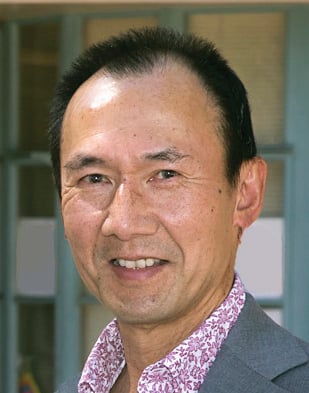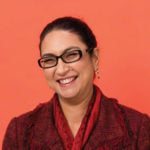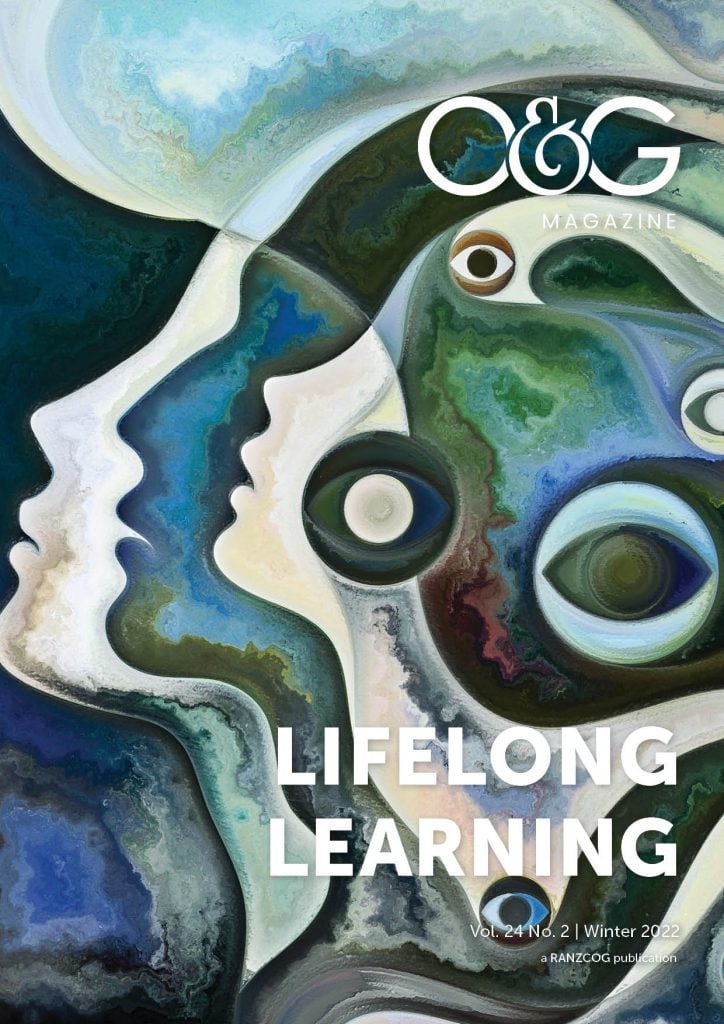This O&G Magazine feature sees Dr Nisha Khot in conversation with women’s health leaders in a broad range of leadership positions. We hope you find this an interesting and inspiring read. Join the conversation on Twitter #CelebratingLeadership @RANZCOG @Nishaobgyn
Prof Yee Leung
MBBS, FRANZCOG, CGO
I first met Prof Leung when I started my term as councillor for Victoria and joined the Women’s Health Committee (WHC). Prof Yee was the chair of WHC and to me, exemplified the ideal chairperson – inclusive yet decisive, gentle yet focused, knowledgeable yet consultative. Under his leadership, the shape of WHC changed significantly to become the modern committee it currently is. Prof Yee was also a Board member at the time and inspired first-timers like me to step outside of our comfort zone to participate in the functioning of RANZCOG confidently.
The theme for this issue is Lifelong Learning, so it seemed entirely appropriate to interview Yee, given his role as former chair of WHC as well as his ongoing interest in teaching via the Anatomy of Complications course.
Many readers will be familiar with him but for those who are not, Prof Leung is a gynaecologic oncologist based in Western Australia (WA). He was the inaugural UWA Professor in Gynaecologic Oncology in 2011. He is the Head of Department at the WA Gynaecologic Cancer Service and the Head of UWA Division of Obstetrics and Gynaecology. He served as RANZCOG Councillor as well as the Chair of the Gynaecologic Oncology subspecialty committee in addition to his roles on various College committees.
His research interests include gynaecologic oncology clinical trials, basic and epidemiological research and he helped establish a gynaecologic cancer bio specimen bank for WA. He was an associate editor of the Journal of Obstetrics and Gynaecology from 2014 to 2017.
Prof Yee is well known for his sartorial excellence and anyone who has known him will attest to his unique and outstanding collection of shirts.

Prof Yee Leung
The last two years have been difficult for all of us but particularly so for WA with strict travel restrictions. How have you been affected?
The pandemic has been a mixed blessing for me. Travel from Perth to Melbourne six times a year for Board-related activities was challenging and took me away from home and work for a week at a time. Virtual meetings caused less disruption to my working week and zero travel.
The downside is not being able to visit our son and daughter who live and work in New York City. Many of you have similar separation from family members.
What made you choose a career in O&G and the subspeciality of gynaecological oncology?
As a medical student (University of WA) and an intern (Sir Charles Gairdner Hospital), O&G was not on my aspiration list. I enjoyed psychiatry, thought surgery was interesting, and seriously considered emergency medicine as that was the new specialty in the early 1980s. After I finished my internship, we moved to Mildura since I felt that country general practice as a procedural GP would be the best fit for me.
This changed following a six-month O&G rotation with Drs Neil Fleming and John Bowditch. I learnt the importance of belonging to a ‘tribe’. Neil and John, GPOs, midwives and anaesthetists were exemplary in working as a team, and I wanted to be a part of a team like this. The following year I returned to WA and was accepted into the RACOG training program.
My first term as a trainee was in gynaecologic oncology. On my first day my wife was in labour with our first child! I remember how confusing that term was, learning new terminology and concepts in oncology. The days were long. I had not considered a career as a Gynaecologic Oncologist. Midway through my training, Prof Tony McCartney and Prof Ian Hammond asked if I was interested in training to be a Gynaecologic Oncologist. My subspecialty training took me to Toronto for two years following which I completed the final year in Perth. The rest, as they say, is history.
Please tell our readers about your journey to the RANZCOG Board. What prompted you to take on leadership roles within RANZCOG?
After returning from Toronto in 1995, I became involved with RANZCOG in the WA State Committee and as a Training Supervisor. This led to involvement in the Gynaecologic Oncology Subspecialty Committee and subsequently chairing this committee. I still keep in contact with some of the College staff from those days because I was so impressed with their dedication and commitment to the process of ensuring quality training and assessment of trainees.
I am committed to contributing to the College work in ensuring women and their families have access to well-trained Fellows. The natural progression was to become involved at College Council, and then applying to be a Board Director.
I would encourage every member to consider how they can become active in College life by contributing at local, state and national levels. By doing so, your contribution will lead to the positive changes that you want to see in our specialty.
What do you see as the challenges in the future for gynaecologic oncology care?
In oncology, it is vital to work in a multidisciplinary team to ensure every patient has access to all care options. I believe the greatest challenges in the future will come from external factors related to constraints in physical spaces (access to wards, theatre, diagnostic and therapeutic services) as well as financial and human resources issues (fiscal responsibility, pandemic response). The needs of the individual will always need to be balanced by the capacity of the society to meet those needs.
The pandemic has had a dramatic effect on waiting lists and this could, in turn, have a deleterious effect on cancer care and timely access to surgery. We will have to do our utmost to ensure that we meet future demands.
What advice would you give to O&G trainees who may be considering subspecialty training in gynaecologic oncology?
Many trainees are attracted to gynaecologic oncology because of the technical expertise required in surgery. My advice is to appreciate that gynaecologic oncology is not just about surgical technical skills. It is about comprehensive patient-focused care and being meticulous about assessment and management of the patient. Be prepared for the long hours, the importance of training outside your state, the challenges of managing a team, and most of all, exercise humility at all times. This is a very rewarding subspeciality if approached with commitment and a willingness to be a lifelong learner.
There is no denying that gynaecologic oncology is a challenging subspecialty with high rates of burnout. How do you protect yourself from burnout and what advice do you have for others?
Self care is about knowing what replenishes you as well as what depletes you. For me, I take time to play tennis and to walk because I am an active person.
My advice to colleagues and trainees is to partake in activities where you see people smile, like walking and skiing, and avoid activities where you see people grimacing, like swimming and long distance running! I would avoid synchronised swimming though as they are just fake smiles.
On a serious note, surround yourself with a functional team. I enjoy the company of encouragers and am frustrated by discouragers or by unnecessary systemic barriers.
In sustaining oneself, I believe it is important to recognise what your trigger points are and develop strategies to deal with these trigger points. These strategies may include putting that email aside for 24 hours, consciously leaving work behind when you drive past a particular tree on your way home or knowing when to say ‘no’ so you have personal time. Always keep the big picture and know what you can and cannot do.
Burnout is very real. The first step is recognising and acknowledging this. Once past this crucial step, help is available. Get help. Don’t fight it all by yourself. There’s nothing more lonely than trying to overcome burnout without any help.
You have been part of the team that runs the Anatomy of Complications Workshop (ACW). Could you please tell us about the workshop and what it aims to achieve?
The ACW started with Prof Ian Hammond (gyn oncologist), Mr John Taylor (urological surgeon and urogynaecologist) and Prof Paul McMenamin (professor of anatomy) designing a practical workshop to help attendees gain confidence and competence in recognising, managing, and hopefully avoiding, complications in surgery. They recognised that O&G specialists were not always confident with dealing with inadvertent injuries to urological, gastrointestinal and major vascular structures. They believed that a thorough understanding of surgical anatomy of the pelvis underpins successful and safe surgery. This theme is fostered throughout the workshops. There are two types of two-day programs: open (standard) and laparoscopic. Medical students are able to register to observe and assist as scrub person. This provides a great experience for students who may be interested in pursuing surgery/O&G as a specialty. Both courses provide intensive, hands-on learning for specialist O&Gs at any stage of their career. The ACW is 21 years old and has held workshops in New Zealand, Hong Kong, Singapore and Ireland.
The Executive is currently led by Dr Robyn Leake, assisted by Clin A/Prof Krish Karthigasu and myself as the executive team and with administrative support from Laura Radovan. There are a number of surgical colleagues from various specialities on the advisory faculty who are also interested in high-level performance, and the ACW vision is to provide the participants with the knowledge and skills to aspire to mastery.
The format has also been updated, recognising surgery is not just a technical skill, but communication and teamwork are critical in creating the optimal environment for high performance in surgery. Dr Joseph Carpini (organisational psychologist) is also an important member of our team.
What are your future plans/projects?
My current priority is to ensure women in WA have access to evidence-based, excellent gynaecologic oncology services through the Western Australian Gynaecologic Cancer Service (WAGCS). My colleagues are Drs Raj Mohan, Chloe Ayres, Dr Emma Allanson and A/Prof Paul Cohen and we work well together in an interdisciplinary team of oncologists, palliative care physicians, gynae pathologists, radiologists, nurses, allied health and clerical staff. Health services around Australia are facing many crises, and what better time to take steps towards positive changes than during a crisis!
The Medical School is also facing challenges and the Division Heads are committed to addressing these challenges and identifying the opportunities arising from these challenges.
Finally, I need to be more disciplined in setting aside time for research projects. I am hoping that I will be able to pursue my research interests more vigorously in the coming years.
If you had to start all over again, what would you do differently and why?
I am fortunate that I look forward to going to work each day. I am still excited about the variety of clinical and surgical work, teaching and training of the next generation of doctors, research to improve outcomes for women and the opportunity to shape the future of women’s cancer services in WA.
The only note I would leave my younger self is to be patient. Systemic barriers cannot be fixed overnight. The secret is to identify those who are in the best position to help affect change and developing a team approach to change management. Once you have a motivated team with you, given time and persistence, change will happen.
I hope you have enjoyed reading this interview with Professor Leung. My aim with this column is to feature women’s healthcare professionals who can inspire readers, especially the next generation of O&Gs. Your feedback and suggestions are very welcome. If you have any recommendations for colleagues or mentors you would like to see featured, please get in touch. I look forward to hearing your thoughts on the current format of this feature and any ideas for improvement.





Leave a Reply